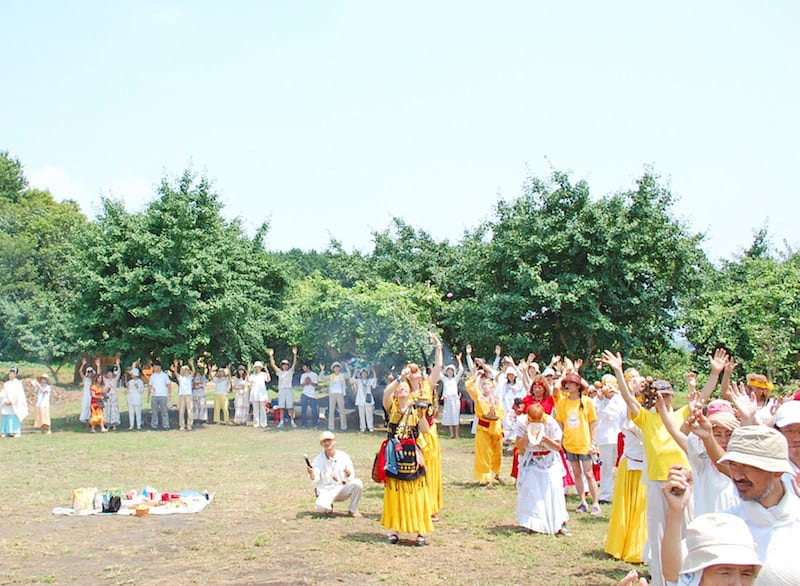Everyday I wake up at 6:30am, walk over to Nakagami Warehouse, and spend the early morning packaging produce. I share this ritual with about 15 other people, every member of the Harvest and Field Teams along with a couple long term helpers. It is no small process.
Of all the food grown by the Konohana Family, 10% is consumed by the community and the remaining 90% is sold. Impressively, this 10% is enough to feed just about 100 people two meals a day everyday, which gives you some idea of the sheer amount of food that is being produced locally.
Needless to say each morning there is a lot of produce to be counted, weighed, measured, and packed, giving me plenty of time to get lost in thought and repetitive motion.

A few days ago, while packaging cherry tomatoes, I noticed that our boxes originally contained “Organic Premium Bananas” from Mexico. It felt so absurd. I was packing tomatoes that were grown in a greenhouse less than a kilometer away, in a box that was probably made in the US, but that was filled with bananas from Mexico, that were eventually shipped all the way to Japan.
Two radically different ideologies were responsible for bringing this box to the tiny Japanese town of Fujinomiya and subsequently filling it with tomatoes. On the one hand, we have our excessively productive system of global capitalism, a system that enables the mass production, shipment, sale, and consumption of Mexican bananas worldwide. On the other hand, we have the Konohana Family, who see the production and consumption of food as a spiritual practice that should be intimate, intuitive, and local.
This banana box filled with Konohana tomatoes symbolically sits at the intersection between the hyper-local and the hyper-global. It is a glocal tomato filled banana box, one that represents these two contrasting ideologies.
Now this got me thinking more about the Konohana Family and its relationship to global flows of capital, people, goods, ideas, etc. I think as much as this community practices a very local existence in its production and consumption habits, it is still deeply ingrained in globalization. Its part of the Global Ecovillage Network, which by its nature is meant to create global connections between communities. Each year it welcomes numerous guests and researchers from abroad. It even collaborates with spiritual communities from around the world, sharing and adopting rituals, ideas, and ceremonies.
One example of such a collaboration is with an indigenous Mayan spiritual collective from Mexico. This partnership first started four years ago when Grandmother Na-kin, the spiritual leader of the Mayan collective, received a vision from the divine telling her that Mt Fuji is the sacred spot where the next Mayan New Year should be celebrated. Through a variety of unexpected human connections, that the Konohana attribute to the Will of the Divine, Grandmother Na-kin came in contact with the Konohana Family. After realizing that their two communities shared similar missions, the Konohana Family hosted the Mayan collective for their celebration of the July 26th 2014 Mayan New Year. This was the beginning of an ongoing connection between the two communities. Just a few weeks ago, the Konohana held a small early morning Mayan New Year celebration in solidarity with their partners and allies in Mexico.
Beyond just these sorts of partnerships, I also have to emphasize that the Konohana perspective is very global. When thinking about climate change, or food production, or modernity, the Konohana are thinking on a global scale. Furthermore, they are thinking about human connectivity, not just within a community of 100 people but across the world. It is in this way that the Konohana Family is truly globalized, for they have a mission to spiritually connect the world, to find unison and solidarity between all humans and with the universe.
